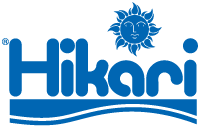Fishkeeping is a fun and rewarding hobby, though can be challenging for novices. Even seasoned enthusiasts have those “ah-ha” moments when they realize their methods are not always the best path to success.
As the originator of the Species Specific™ diet and an industry leader for over 146 years, Hikari® offers hobbyists the world’s most recognized premium aquatic diets. If you are looking to ensure your aquatic pets live a long and health-filled life, here are some battle scars we have earned that you might want to avoid.
Overcrowding Your Aquarium
Fish are beautiful and enjoyable pets in any home, but adding too many fish at once or crowding a small tank is a common impetus for aquarium and fish problems. When first getting started in the hobby, it can be tempting to add a lot of new fish to a tank or add a fish too early. It’s important to remember adding fish too early, before your tank is cycled, or too many fish at one time, can cause an imbalance in ammonia and nitrite in your tank, making it impossible for your bioaction to keep up with the increased ammonia coming into the system from the new arrivals.
Adding too many new fish to your aquarium setup at one time also automatically increases fish stress. This can make your original tank inhabitants, as well as the new ones, more susceptible to stress induced disease. A rapid change in the water quality, or space your fish has carved out in the tank that is now gone, can easily negatively impact the immune systems of your original fish. While discovering new fish is exciting, waiting until you are sure your tank, environment, and existing fish can handle the new addition can prevent stress and ensures your filtration system has time to reach maximum efficiency.
For new hobbyists who are unsure fishkeeping is really for them, the temptation might be to cut costs and invest in a smaller tank. While budget is an important concern, often the best plan of action is to start with the largest tank you can afford that can fit comfortably in your home. This will eliminate the concern that your fish are overcrowded, or that you have to upgrade in a short period of time to keep all the fish you grow to love.
Overfeeding and Underfeeding
Improper feeding is a common mistake many aquarium owners make. While worrying your fish are not eating enough is an understandable concern, overfeeding can cause significant harm to the health and environment of your fish. Food that is not consumed is left decaying in the water which can cause several water quality issues. If left unattended for longer periods, this food can break down into a toxic environment. Overfeeding also leads to more waste from your fish, which can increase ammonia levels and reduce oxygen levels. By sticking to a consistent feeding schedule and ensuring any uneaten food is properly removed from the aquarium after the feeding period, your aquatic environment will be clear and safe for your aquatic pets to enjoy.
Now, not feeding your fish enough can be just as dangerous as feeding too much. While it is often better to err on the side of too little than too much, underfeeding fish can be an easy mistake to make and over time cause malnourishment. Lethargy, loss of coloration, reduced growth and sluggish response are all signs your fish might not be receiving adequate nutrition. Though fish are adapted in the wild to go without food for extended periods of time, underfed fish can suffer from several health issues related to lack of nutrition.
Ask for help if you need to
By recognizing the unique dietary needs of your fish and adjusting accordingly, you can be sure they receive optimum levels of food. Feeding between 1.7 and 2.0 times the body weight of your fish is a range you want to stay in. Additionally, smaller feedings each day instead of one or two larger ones is best. Try to avoid feeding within an hour of the lights coming on or going off as your fish will be more active and digest the food more completely when following this schedule.
We’re happy to help with any questions you may have! Email us at fish@hikariusa.com and one of our expert team members will be happy to assist you.

